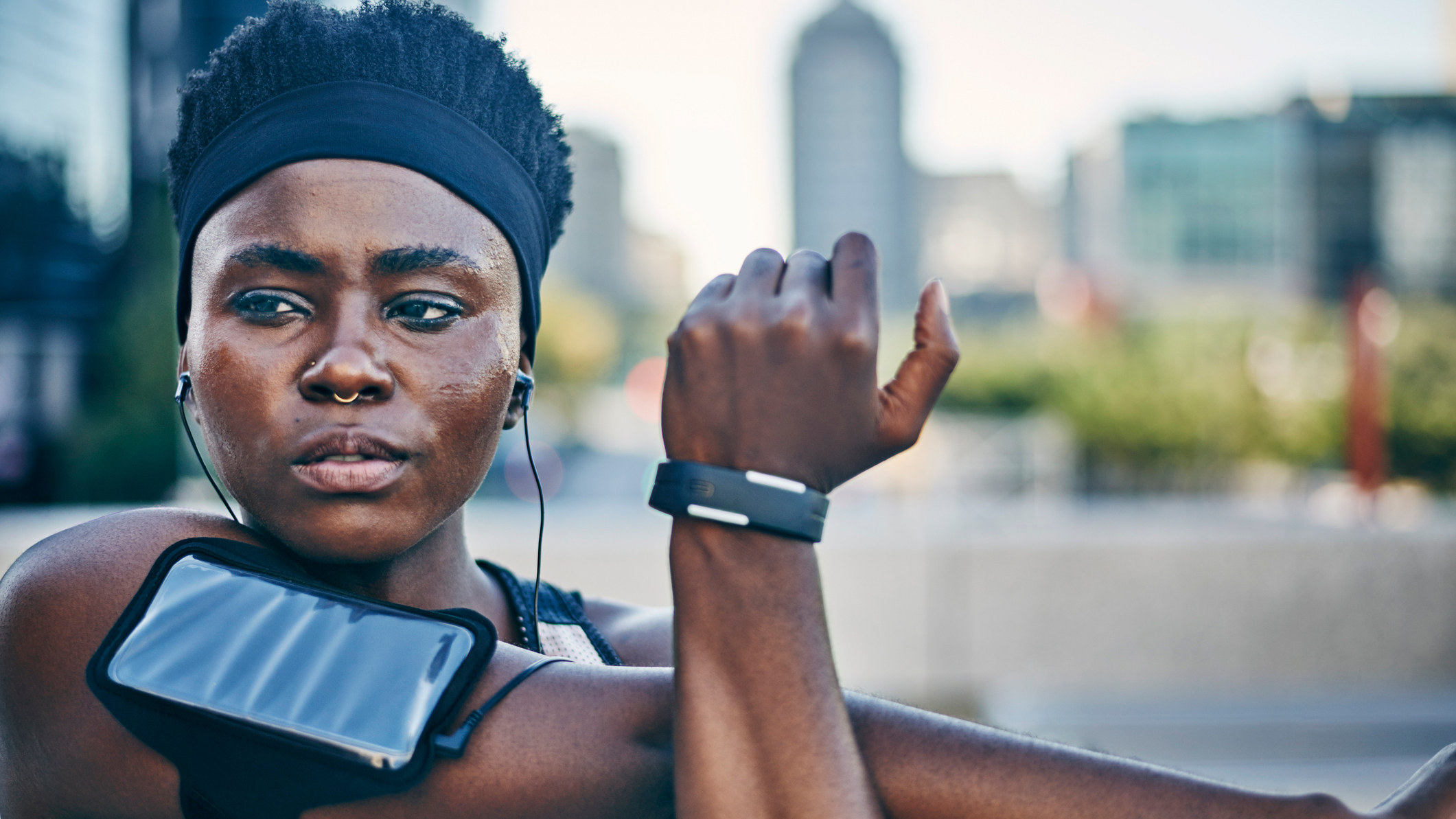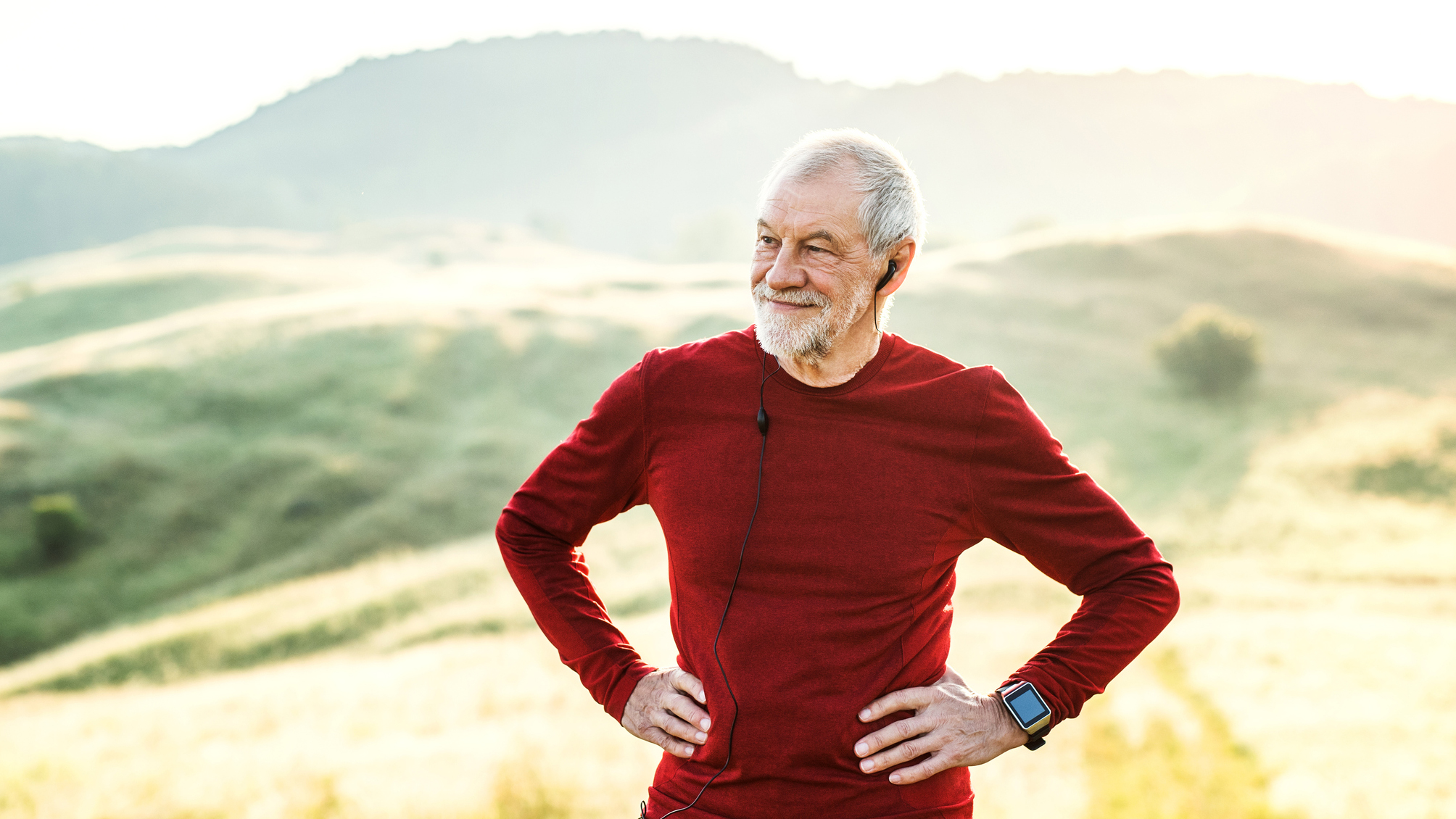Should you listen to music or podcasts during your workout?
Which is better to pipe into your workout earbuds – music or podcasts? Science weighs in


What do you listen to? Whether you're used to piping throbbing deep house or heavy metal into the best workout earbuds money can buy, or you just like a relaxing talk podcast to dive into during long runs, everyone has their own personal favourites. Your choice of audio companion could even impact your performance, according to science.
A study from the Memorial University of Newfoundland in Canada found music could "reduce rating of perceived exertion, increase exercise enjoyment and enhance exercise performance", in exercises performed at moderate intensity. High-tempo music, at to 130 beats per minute (BPM) or more, encouraged the participants worked around 10% harder.
This is great for HIIT workouts. Whether boxing, sprinting or doing sets of burpees, high-intensity interval training is all about working at your maximum and giving it your all. Music can raise your workout intensity, so just when you think you're giving it your all, the next fast-paced song hits your headphones and you switch things into high gear.
However, there are a few drawbacks to listening to music as you work out, namely that you need to make sure you're using music with the correct BPM. If you play extremely fast-tempo music during a long endurance run, you're more likely to run faster, true – but you're also more likely to misjudge your pace, using up too much energy and tiring yourself out quicker.
Music can also increase exercise enjoyment by distracting you from your exhaustion, but this is a phenomenon not limited to music: podcasts or audiobooks can do the same thing.

Podcasts have become enormously popular over the last 15 years. As one of the fastest-growing media formats, conversational or narrative podcasts don't have the benefit of BPM to increase your workout intensity, so they're not ideal for HIIT training but they have their own unique benefits when doing monotonous endurance exercise like cycling or running.
For example, podcasts are often educational: in an article for the Washington Post, sports psychologist Chris Freisen said running stimulates the right portions of your brain to help you learn, solve problems and think creatively. It's the perfect time to multitask with an educational podcast. It can also help you digest information when listening to audiobooks, improving your memory and helping you to concentrate on the story. You can still get distance and time updates every mile, thanks to some of the best online personal trainer and fitness apps.
Start your week with achievable workout ideas, health tips and wellbeing advice in your inbox.
Ultimately, everyone has their own personal preference. Generally speaking, place podcasts into your earbuds to learn over long stretches, while music is better for performance-based work.
Matt Evans is an experienced health and fitness journalist and is currently Fitness and Wellbeing Editor at TechRadar, covering all things exercise and nutrition on Fit&Well's tech-focused sister site. Matt originally discovered exercise through martial arts: he holds a black belt in Karate and remains a keen runner, gym-goer, and infrequent yogi. His top fitness tip? Stretch.
